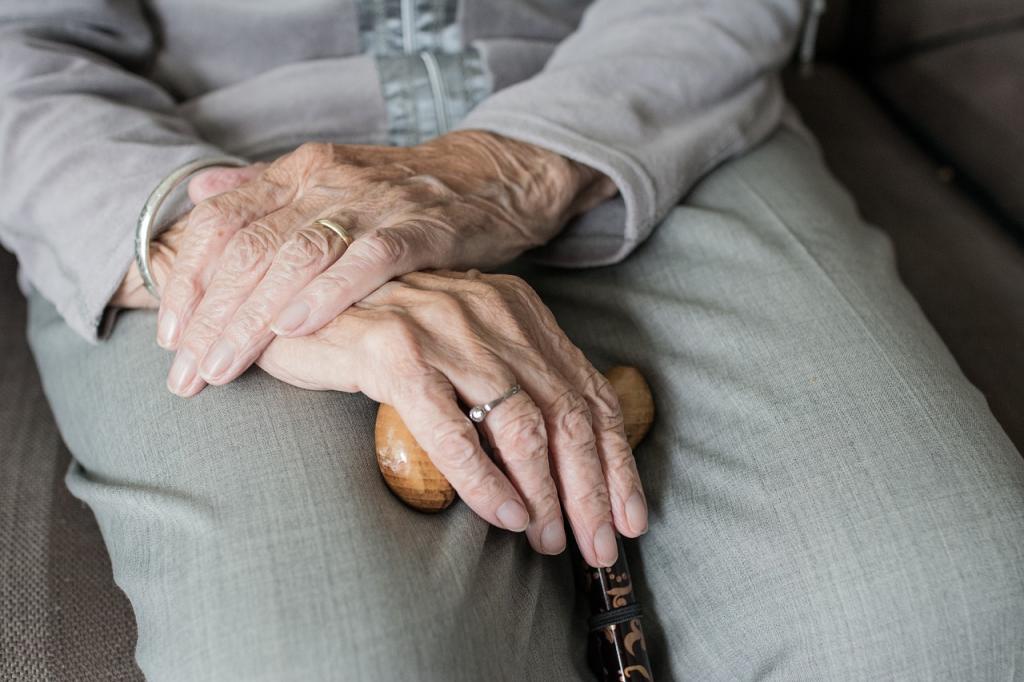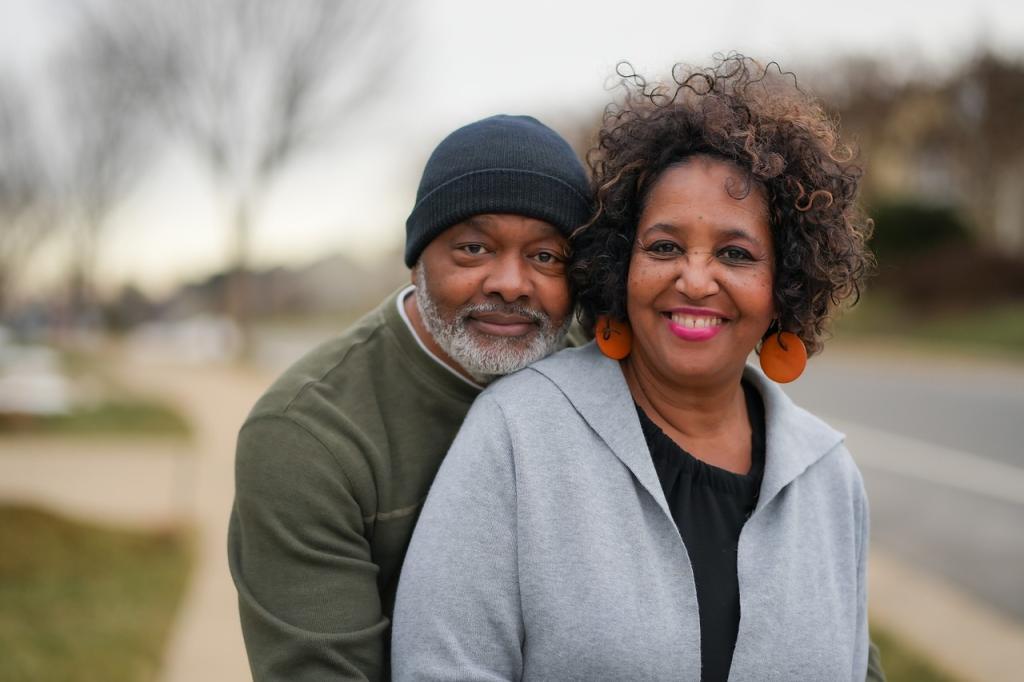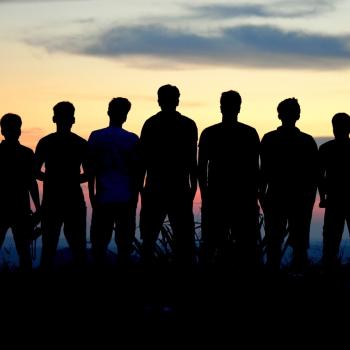
Image by Tom from Pixabay
We, collectively as a nation, are getting older—much older. About one in four people fall under the category of “senior citizen.” The number of boomers (those born between 1946 and 1964) alive today is about 64 million. According to one report, “the aging of the baby boomers is creating a dramatic shift in the age composition of the U.S. population.”
Furthermore, many of the boomers are working much later than expected. Perhaps it’s inflation, the rising cost of living, or high debt and poor planning, but more and more are not retiring. I stood at the checkout stands at Safeway yesterday, where five checkers were working, and four were at least in their late 60s or early 70s.
My wife recently had foot surgery and got a handicapped parking pass for a couple of months. Have you tried to find an open handicapped parking spot recently? Good luck. And the last time I went for a walk in the park, it felt a bit like a geriatric parade. Don’t even get me started on how large Costco’s adult diaper section is.
Pick your favorite cliché about aging and say it aloud. Go ahead; I will wait.
You’re only as old as you feel. (Or is it fell?)
Age is only a number. (Your blood pressure is a number, too, and it ain’t always good.)
You’re not getting older; you’re getting better! (Better at what? Napping? Driving?)
Now, smack yourself for being so stupid. We live in a time when we want to believe that 70 is the new 50. It’s not.
But hold on . . . don’t walk off into the woods to die yet or volunteer for senilicide (the killing of old people; you can read about it here).

Image by �♡�♡� Julita �♡�♡� from Pixabay
We may need a shift in our attitude about aging and our elders.
Rather than subject our elders to neglect, abandonment, and other various forms of abuse at times, we need to learn to value not only what they’ve done but what they can still do.
We’ve come a long way in our respect for veterans, first responders, and people of color, but the lack of honor for our elders is disturbing. Occasionally, I like to take public transportation. The last time I did, I sat as far back as possible to watch the people. People watching may sound creepy to some, but I find it fascinating.
An elderly woman, probably in her 80s or 90s, got on the bus. Sadly, she was forced to move all the way back because no one got up to offer her their seat. I jumped up to steady her and help to the seat next to me as the bus jolted back into traffic. There were no less than thirty people, all decades younger than her, who didn’t even make eye contact with her, let alone give her a seat near the front.
We talked for about ten minutes until her bus stop. Her name was Ann, and she was a schoolteacher in Idaho for over forty years. This fantastic, beautiful, and kind woman told me with tears in her eyes, “I just feel like a burden to everyone anymore.” I assured her she was not and thanked her for her incredible influence on hundreds of children. She patted me on the hand, smiled, and said, “If I were younger, I’d ask you to marry me!” We both laughed.

Image by Sabine van Erp from Pixabay
What We Must Remember About Aging
There’s something I call the “third journey.” This season in your life is the last third or so of your voyage on planet Earth.
The “first journey” is the decades of your youth when much growth and massive change occur.
The “second journey” is the decades of your life when you’ve settled into a career and have an established family. During this part of the voyage, there are challenges, but for the most part, you live a life of relative comfort and routine.
The “third journey” refers to the last 20 or 30 years of your life. If you were married with kids, you’re probably now an empty-nester (unless your 30-something has moved back home for a time).
The third journey is a season when some want to coast, thinking they paid their dues. They’re tired, and they’re leaving adventure to the younger generation. This season is also where they begin to feel like and fear becoming a burden to others.
However, this mindset is a modern perspective in Western culture. Too many currently view age as a curse and focus on physical limitations rather than the wisdom gained through the unbuyable experiences of life.
I agree with Rob Giannamore: “Our modern society has a weird relationship with aging.”
Instead of seeing those in their third journey as an asset and a blessing, the younger generations sometimes see them as a bother and a bottleneck to their advancement.
Rather than glean from their life experiences and listen to their wisdom, many reject those in the third journey as out of touch, out of date, and, therefore, of little or no value.
To the young(er) ones reading this, I encourage you to change your perspective. You might be smart, sharp, and full of energy, but wisdom comes through experience, and you need the wisdom of those who’ve walked before you.
And in the future, when you are on your third journey, you will be glad you treated others how you want to be treated.
Here’s my challenge to those of you in your third journey:
- Stop worrying about “becoming a burden.”
- Turn off the TV. (There’s a reason they used to call it the “idiot box.”)
- Get off your butt.
- Find a place to have an impact and make a difference.
Do not surrender your potential because someone told you it’s time to be put out to pasture. Do not give up your dreams because you think your better days are behind you.

Image by Alisa Dyson from Pixabay
What if the best is yet to come?
- Write a book and leave a legacy for your kids and grandkids.
- Start a new career. Something small and simple is fine.
- Pick up a musical instrument and learn to play it.
- Mentor a young leader.
- Go back to school and learn something new.
Until your last breath, be both a learner and a teacher. Continue to grow and continue to share.
Sure, your memory might not be what it once was, and your energy might be reduced, but there’s no substitution for what you’ve learned in the trenches of life.
I like Betty Friedan’s quote: “Aging is not lost youth but a new stage of opportunity and strength.”
Allow me to use an old cowboy cliché, “don’t hang up your spurs.”
Not now.
Not yet.
You’re still needed.
You still have value (and always will).
“Wisdom belongs to the aged,
and understanding to the old” (Job 12:12 NLT).













